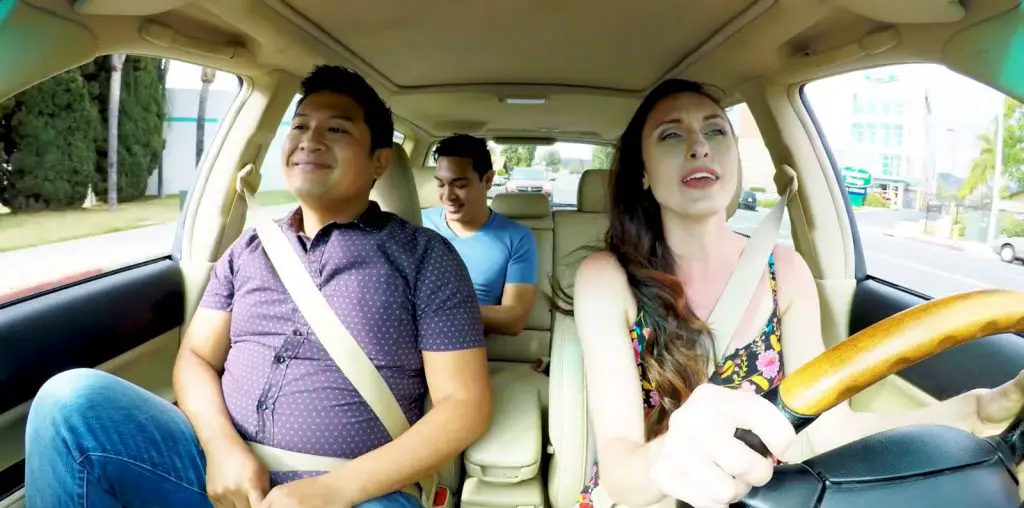
It recently came to light that Cambridge Analytica duped several million Facebook users, as well as other social media followers, into allowing the company to collect data without adequately disclosing what they would be doing with that information. The illicit use of that data has become the subject of much controversy, with several higher-ups at the British company have been let go in light of the scandal. These recent events give the documentary The Cleaners an unprecedented presence, too bad, then, that it is too unfocused to have a point.
Interviewing a small group of social media content moderators working in Manila, along with some big names working for the likes of Google, directors Hans Block and Mortiz Riesewieck have a wonderful idea at play here. Mixing the interviews with news footage and public record testimony about the security features of Google, Facebook, etc., the topics open for discussion cover a wide range. What violates a given social media site’s terms so the picture/video needs to be deleted, how can such a site promote the 1st Amendment while censoring content, to some degree (typically in an effort curb violent rhetoric), to what privacy means in this day and age when everyone shares everything, and where the lines between news, critique, and harassment veer and intersect are brought up.

“…what does privacy means in this day and age when everyone shares everything, and where the lines between news, critique, and harassment veer and intersect are brought up…”
All those ideas are thematically interrelated, but The Cleaners haphazardly stumbles through them. Starting off with emails from an anonymous source about his/her higher ups and how the leaks are getting too dangerous, the movie sets the viewer up to expect a thriller, or maybe a drama akin to The Whistleblower. These emails recur throughout the entire 90 minutes of the movie. Since they are fictitious and nothing else in the documentary is, they’re not only out of place but actively confuse the audience and undermine the film’s credibility. The more significant issue is that no one, save for former Google and Twitter policymaker Nicole Wong, is introduced to the audience. The four content moderators interviewed are obscured by skewed camera angles or are strictly seen from the back for about half the movie. Then the big reveal of what they look like comes, and it is underwhelming. They are just shown, matter of factly, later on in the film, so why the initial obfuscation?
Whatever training the moderators have to go through to get this job is never shown or explored, so how they decide what is appropriate seems perplexingly arbitrary. This is the crux of what the movie is exploring, at least in theory, so not covering the training or underlying methodology leaves too many unanswered questions. Then, how the movie handles moving from one topic to the next, from the moderators discussing their views of the job to former Google design ethicist Tristan Harris, is confusing. There is not a single contextual clue that this is what the movie has moved on to until the interview starts up. This lack of segues happens every time the movie switches gears and baffles the audience.

“…believes her job to be the protector of the internet, to police it, and ensure nothing unseemly gets where it shouldn’t…”
The subjects of the various interviews are engaging, with thoughtful and reasonable takes on their respective areas of expertise. In particular, Nicole Wong is very sharp and wants to genuinely help shape the internet and social media landscapes for the better. One of the content moderators in Manila believes her job to be the protector of the internet, to police it, and ensure nothing unseemly gets where it shouldn’t. Is this based on a profoundly religious background? From the extreme views of the Filipino government in charge?The Cleaners isn’t interested in answers to these questions, so, once again, the audience has no context for the ideas presented. Since these people are meant to be the thread that carries the audience through the nebulous nature of permitted art versus vulgarity, this chronic aversion to context undermines the film’s impact.
One doesn’t need to agree with The Cleaners’ message to appreciate that it wants to have a meaningful conservation about data collecting, social media content moderation, and the privacy and 1st amendment ethics these sites present. However, topical resonance is all that the movie musters, as it changes subject matter on a whim and doesn’t give the audience enough background information on the issues or the interviewees to make a whole lot of sense.

The Cleaners (2018) Directed by Mortiz Riesewieck, Hans Block. Written by Mortiz Riesewieck, Hans Block, Georg Tschurtschenthaler. Starring Nicole Wong, and Tristan Harris.
Grade D+


